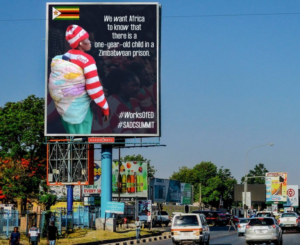ZIMBABWE’S BAN ON USED CARS WON’T SAVE THE ECONOMY
Zimbabwe imports almost everything, from bottled water to matchsticks, under Statutory Instrument (SI) 64. So, banning used cars makes no sense and won’t work. This ban is based on a wrong idea that the motor industry and the whole economy can be protected from imports. The government thinks this will stop trade imbalances, but it won’t. Zimbabwe’s trade deficits are caused by exporting raw materials like unprocessed agricultural products and minerals at low prices, while importing more expensive goods. The ruling party, Zanu PF, needs to fix the problems they created instead of using protectionism.
Real reforms are needed to solve the issues caused by the mix of the party and the state. This mix has led to corruption and economic crisis. According to Moore (2014a), the crisis is due to a blend of force and consent used by ruling classes. The ruling classes switch between political and ideological control, creating trade imbalances that Zanu PF tries to fix with protectionism.
Zimbabwe is struggling with high inflation, growing debt, and wasteful spending with no returns. The tax system is unfair, leading to tax evasion. The mix of Zanu PF and the weak state allows corruption. Can a country in this bad shape afford protectionism? No. The industry needs strong policies that respect private property and the rule of law to revive and stabilize.
The political deadlock prevents needed reforms. Zanu PF’s attempts to create a one-party state aim to hold on to power and access people’s wealth, leading to poor public services and welfare. The economy is underperforming due to bad policies meant to keep Zanu PF in power. Corruption from these policies has caused a huge decline in Zimbabwe’s industry, which was once the second largest in Africa.
In the past, the Economic Structural Adjustment Program (ESAP) was introduced to fix the damage done by Zanu PF’s socialist policies. However, Zanu PF’s hostility towards Western democracies hurt the economy further. Zanu PF’s preference for socialism led to efforts to create a one-party state. Expecting a socialist state to be democratic is unrealistic, just like expecting a fish to climb a tree. Zanu PF’s ignorance prevents them from understanding their failures, and protectionism won’t fix the crisis they created.
Zimbabwe faced condemnation and isolation due to Zanu PF’s hold on power. In response, Zanu PF launched the Look East Policy, which harmed the local industry by exposing it to cheap imports, causing many businesses to shut down. This led to unemployment and other issues. The Look East Policy was more about Zanu PF’s political survival than the welfare of the people.
High taxes and inflation have reduced consumer wages, making local products expensive. Cheap imports from China became an attractive alternative, but this neglected Zimbabwe’s industry. The government’s wasteful spending, funded by unfair taxes, burdens the average citizen who did not benefit from these borrowings.
In conclusion, Zanu PF is not interested in reviving and stabilizing the industry. Their focus is on self-preservation and staying in power. A strong economy would reduce people’s dependence on the government, which Zanu PF uses to retain power through partisan distribution of food aid and agricultural inputs. The lack of political will for reforms and the continuous borrowing show that Zanu PF does not want to fix the economy. Without reforms, there is no industry worth protecting.



